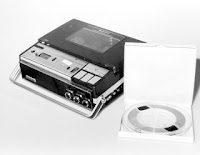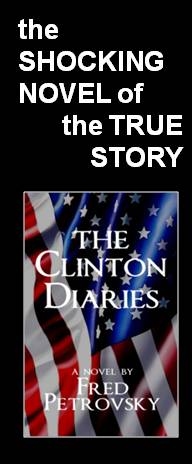
One of the most fascinating mysteries of presidential history relates to why Richard Nixon didn't destroy the secret White House tapes. If he had, he might very well have served out his second term instead of being forced to resign. But the tapes remained safe, except for the infamous 18 1/2 minute gap. The record strongly suggests, however, that
Nixon wanted the tapes destroyed. On April 18, 1973, just days after the existence of the tapes became public, the following conversation took place between Nixon and H.R. Haldeman, his chief of staff:
Nixon: "I'd like you to take all these tapes, if you wouldn't mind. In other words, uh..."
Haldeman: "Yeah."
Nixon: "I'd like to because there's some material in there that's probably worth keeping."
Haldeman: "Yeah."
Nixon: "Most of it is worth destroying. Would you like, would you do that?"
Haldeman: "Sure."
How do we know about this conversation? Simply because, ironically, Nixon and Haldeman were being recorded. And Haldeman never followed through on Nixon's instructions. During the historic 1977 Nixon/Frost interviews, Nixon was specifically pressed on this question. His answer was that "it would have been an open admission, or at least appeared to be an admission, well, I'm trying to cover something up." But the facts don't support this spin. Simply put, Nixon wanted the tapes to disappear. But Haldeman didn't cooperate.
Here's a link to a transcript and audio recording of the April 18, 1973 Nixon/Haldeman conversation, courtesy of the Presidential Recordings Program at the Miller Center of Public Affairs, University of Virginia. (Pictured is a photograph of the original Nixon White House tape recorder and tape, courtesy of the American Historical Association and the National Archives and Records Administration.)

 It's tough for a lame duck president to push his agenda forward. When a president announces he won't run for re-election or when he nears the end of his second term, the Congress has historically gone its own way. So to retain power, it behooves a president to avoid being seen as a short timer. Unless you're Rutherford B. Hayes. He campaigned on a promise to serve only one term. Shortly after becoming president, he affirmed his intention to not seek a second term. Hayes was a staunch supporter of single terms for presidents. In fact, in his inaugural address, given on March 5, 1877, Hayes announced his support for a single term of six years.
It's tough for a lame duck president to push his agenda forward. When a president announces he won't run for re-election or when he nears the end of his second term, the Congress has historically gone its own way. So to retain power, it behooves a president to avoid being seen as a short timer. Unless you're Rutherford B. Hayes. He campaigned on a promise to serve only one term. Shortly after becoming president, he affirmed his intention to not seek a second term. Hayes was a staunch supporter of single terms for presidents. In fact, in his inaugural address, given on March 5, 1877, Hayes announced his support for a single term of six years.




























